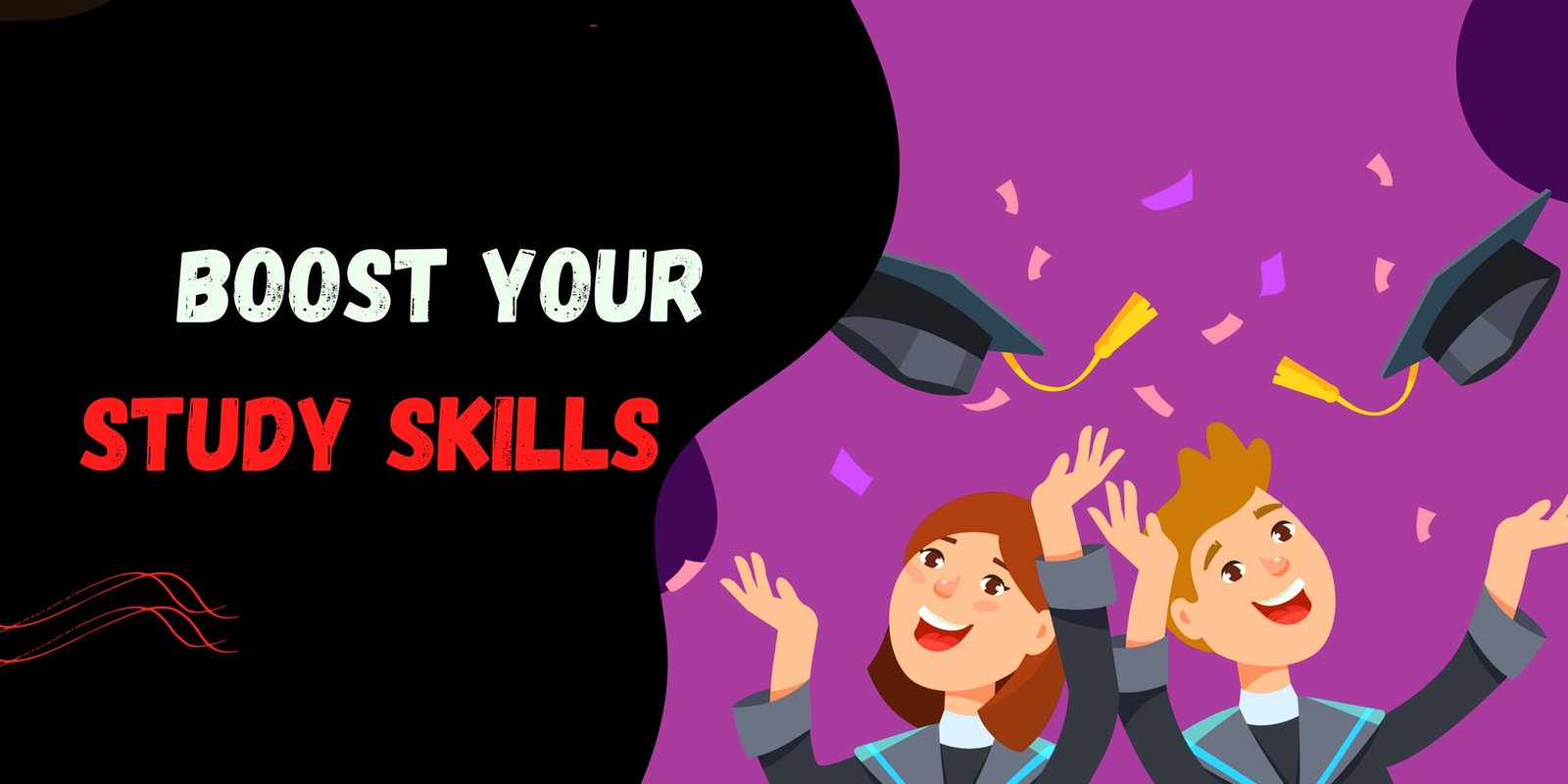Boost Your Study Skills: Techniques to Improve Learning

Boost Your Study Skills: Techniques to Improve Learning. Learn effective study strategies to enhance your learning capabilities. Understand your learning style, set clear goals, create a study plan, practice active reading, utilize visual aids, and more. Improve focus, manage time, and adopt a growth mindset. Boost your study skills today!
In today’s fast-paced and information-driven world, developing effective study skills is essential for success. Whether you’re a student, a professional, or someone looking to expand your knowledge, mastering the art of learning can significantly enhance your academic and professional performance. This article explores various techniques and strategies that can help boost your study skills and optimize the learning process.
Read More: The Science of Effective Studying: Strategies for Success
Understanding Your Learning Style
To boost your study skills, it’s crucial to understand your preferred learning style. People have different ways of absorbing and retaining information, such as visual, auditory, or kinesthetic learning. Identifying your learning style allows you to tailor your study techniques accordingly, maximizing your comprehension and retention.
Setting Clear Goals
Setting clear and achievable goals is essential for effective studying. Define what you want to accomplish in each study session or learning endeavor. Whether it’s mastering a particular subject, improving a specific skill, or completing a project, setting goals provides direction and motivation, leading to better outcomes.
Creating a Structured Study Plan
A well-structured study plan is key to efficient learning. Break down your study materials into manageable chunks and allocate specific time slots for each topic or task. Organize your study sessions, ensuring a balance between different subjects and topics. A structured plan helps you stay organized, reduces procrastination, and promotes consistent progress.
Active Reading and Note-Taking
Active reading involves engaging with the text rather than passively scanning it. Highlight key points, write marginal notes, and summarize sections to reinforce your understanding. Effective note-taking techniques, such as creating outlines or using mind maps, help you synthesize information and make connections between different concepts.
Utilizing Visual Aids and Mind Mapping
Visual aids, such as diagrams, charts, and graphs, can enhance learning by providing a visual representation of complex information. Mind mapping, a technique where you create a visual diagram of interconnected ideas, is especially useful for organizing and reviewing concepts, improving comprehension and recall.
Practicing Retrieval and Spaced Repetition
Retrieval practice involves actively recalling information from memory, strengthening your long-term retention. Regularly quiz yourself or use flashcards to reinforce key concepts. Spaced repetition, on the other hand, involves reviewing information at increasing intervals over time, optimizing learning, and preventing forgetting.
Collaborative Learning and Study Groups
Engaging in collaborative learning can enhance your study skills through active discussion and exchange of ideas. Join study groups or find peers with similar learning objectives. Sharing perspectives, explaining concepts to others, and receiving feedback fosters deeper understanding and encourage critical thinking.
Effective Time Management
Time management is crucial for efficient studying. Create a schedule that accommodates your study sessions while considering other commitments. Prioritize tasks, set deadlines, and avoid procrastination. Allocating dedicated time slots for focused studying helps you make consistent progress and reduces the likelihood of cramming.
Managing Distractions and Improving Focus
In today’s digital age, distractions abound. To optimize your study environment, eliminate or minimize distractions. Turn off notifications on your phone, find a quiet space, and use website blockers if necessary. Additionally, practicing mindfulness techniques, such as deep breathing or meditation, can help improve focus and concentration.
Taking Breaks and Engaging in Physical Activity
Taking regular breaks during study sessions is essential for maintaining productivity and preventing mental fatigue. Engage in light physical activity or stretching exercises to rejuvenate your mind and body. Physical movement increases blood flow, releases endorphins, and improves cognitive function, ultimately enhancing learning capabilities.
Seeking Assistance and Utilizing Resources
Don’t hesitate to seek assistance when facing challenges or difficulties in your studies. Consult teachers, professors, mentors, or tutors who can provide guidance and support. Take advantage of libraries, online resources, and educational platforms to access additional learning materials and expand your knowledge base.
Embracing Technology for Learning
Technology offers a wealth of tools and resources to enhance your study skills. Utilize educational apps, online courses, interactive platforms, and digital note-taking tools. Explore multimedia resources, such as educational videos or podcasts, to supplement your learning experience and make it more engaging.
Adopting a Growth Mindset
Having a growth mindset is crucial for continuous learning and improvement. Embrace challenges as opportunities for growth, believe in your ability to develop new skills, and persist in the face of setbacks. Cultivating a growth mindset fosters resilience, creativity, and a lifelong love for learning.
Enhancing Memory Retention Techniques
Improving memory retention is a vital aspect of effective studying. Employ mnemonic devices, such as acronyms or visualization techniques, to remember complex information. Break down large concepts into smaller, digestible chunks. Regularly review and revise previously learned material to reinforce memory recall.
Read More: Top 7 Tips on How to study smarter, not longer
Conclusion
Boosting your study skills is a journey that requires dedication, discipline, and effective strategies. By understanding your learning style, setting clear goals, and implementing techniques like active reading, mind mapping, and retrieval practice, you can optimize your learning experience and achieve greater academic and professional success.
FAQs
Can these study techniques be applied to any subject or academic level?
Absolutely! These techniques are applicable across various subjects and academic levels, from school to university and beyond.
How long does it take to see improvements in study skills using these techniques?
The timeline for improvement varies from person to person. Consistent practice and implementation of these techniques will yield noticeable results over time.
Are there any specific apps or tools recommended for boosting study skills?
There are several excellent study apps and tools available, such as Evernote, Quizlet, and Trello, which can aid in organizing and optimizing your study process.
Is it possible to improve study skills for individuals with learning disabilities?
Absolutely. While individuals with learning disabilities may face unique challenges, personalized approaches, and accommodations can help improve their study skills and learning outcomes.
Can these techniques be used by professionals looking to enhance their knowledge in specific areas?
Yes, these techniques are not limited to academic settings. Professionals can apply them to expand their knowledge base and enhance their skills in specific areas of interest.








5 Comments